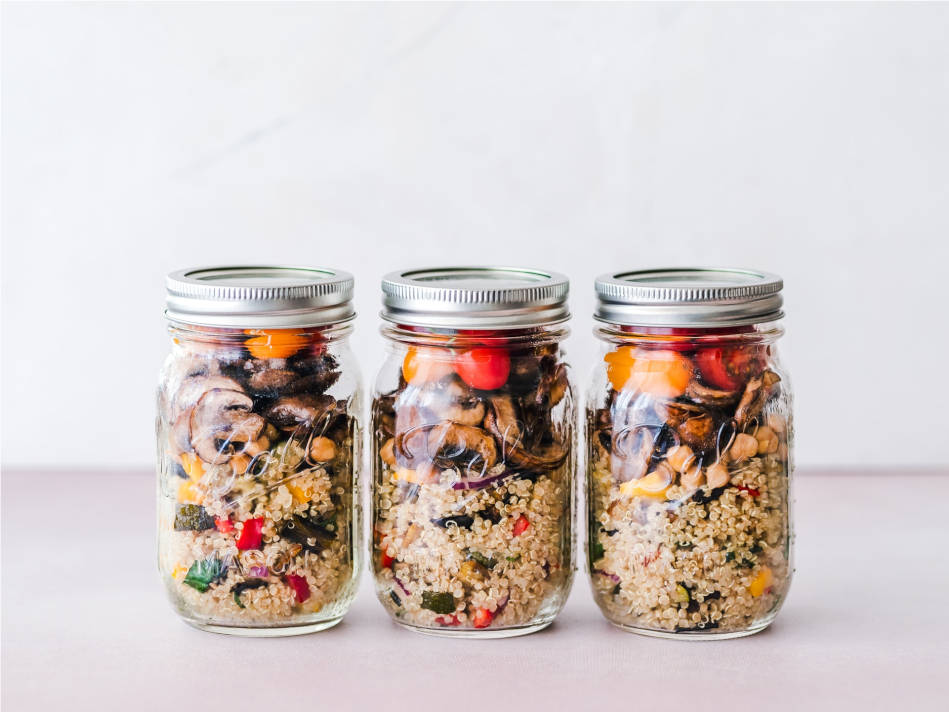Total cholesterol consists of high and low-density lipoproteins (cholesterol bound to a transport protein). High-density lipoproteins are called good cholesterol because they take cholesterol from the tissues and carry it to the liver, where it is excreted along with bile acids into the intestines and removed from the body in final stage. Low-density lipoproteins are called bad cholesterol. They take cholesterol from the liver and carry it to the tissues. If the amount of low-density lipoproteins is too high, then they begin to accumulate in the walls of blood vessels and over time can significantly narrow their lumen, obstructing the flow of blood. It is estimated that more than 28 million US people who decide to have their blood tested have an increased cholesterol level, according to the results of the report by the American Heart Association. So, in this article, we will look at a few simple measures to reduce cholesterol levels in our blood.
Physical activity: Why Is It Not Enough to Lower Cholesterol?
According to the recommendations of the World Health Organization, every person should engage in moderate-intensity sports activities at least five times a week for 30 minutes each. Movement stimulates the metabolism in the body, which is good not only for our figure but also for our health. When we weigh less, the risk of high blood pressure decreases amongst other things. In addition, people, who weigh less, less frequently suffer from glucose metabolism disorders, which also promote the progression of atherosclerosis.
However, most of the cholesterol is produced by our body itself, so it may not be possible to significantly reduce it with an active lifestyle alone. The most important thing is to balance an active lifestyle with a healthy diet, and also take care of your mental health and regularly seek check ups and reviews by your doctor. It is a known fact that not only due to genetics but often also due to improper nutrition or constant stress, cholesterol levels increase in our blood.
The last two aspects are extremely relevant, so pharmacists recommend paying more attention to what we eat and how we feel while spending time at home.

Your Heart Best Friends: Plant-based Food
Nutrition is the most essential factor that leads to good health and a healthy heart. We get most of our cholesterol from food with saturated fatty acids. The occurrence of atherosclerosis is greatly influenced by improper food, factory-processed foods, bad habits, such as smoking, high blood pressure, and too little consumption of vegetables. Unhealthy food, for instance fried, modified, and saturated fat-rich foods increase chronic inflammation in the body, which can damage blood vessel walls, allowing cholesterol to enter and accumulate more easily.
Therefore, in order to reduce cholesterol in the body, it is important to have a balanced diet: eat a lot of vegetables, fruit and nuts, with meat or sweets making up a small part, if any of our caloric intake. We need to increase unsaturated fat in our daily diet. Unsaturated fats are best obtained from plant-based products like nuts and avocadoes. That’s the way nature is: most of the human diet has always consisted of plant-based products, and only in the last century we have started eating a lot of meat. Our bodies are not genetically adapted to the amount of meat we eat now.
Unsaturated fats are known as the good fats and their main sources are nuts, seeds, and various vegetables. The main component of the Mediterranean diet is monounsaturated fat, which is associated with a low risk of heart disease. Olive oil, avocados, and almost all nuts are sources of this type of fat. Polyunsaturated fats are the most important, meaning they must be obtained from food. Flaxseed and walnuts are good sources of polyunsaturated fats. Try to replace unhealthy fats with mono- or polyunsaturated fats whenever possible. Research shows that it helps lower cholesterol and reduces the risk of heart disease.
Cholesterol Responses to Constant Stress
Stress is a constant companion of modern man. Although the psychological and emotional effects of stress are often discussed, doctors emphasize that high tension can also lead to certain diseases or their exacerbation. And you know what? Stress can cause cardiovascular diseases too. The European Society of Cardiology has identified stress in its cardiovascular disease prevention guidelines as a significant risk factor for myocardial stroke or heart attack.
According to cardiologists and scientists, stress also increases the concentration of cholesterol in the blood, blood pressure, pulse, and oxygen consumption, so high stress can really be extremely dangerous for patients with cardiovascular diseases. Stress can also lead to the onset and progression of these diseases. If you only experience occasional stress, it’s not necessary to worry a lot about it, but chronic stress can raise your cholesterol for a number of reasons. First, people become more physically inactive or eat unhealthy foods due to constant stress. In addition, stress stimulates the release of cortisol and adrenaline, which stimulate the release of triglycerides and free fatty acids, which are responsible for increasing bad cholesterol levels. Moreover, due to the effects of stress, the cholesterol plaques accumulated in the blood vessels can crack, and as a result, a person can have a myocardial infarction.

Supplement when needed
Supplements and sometimes medication may be needed to treat the imbalance of “good” and “bad” cholesterol. Statins are medications with significant scientific evidence of positive effects. Statins not only suppress the production of “bad” and promote the production of “good” cholesterol in the body, but they also stabilize existing atherosclerotic plaques and protect them from rupture. When dyslipidemia occurs, statins are recommended both for those who already had cardiovascular diseases and for healthy but high-risk patients. It should be remembered that if these drugs are used in the right doses, regularly, when the target level of “bad” cholesterol is reached, the risk of cardiovascular diseases decreases.
A point to remember, is that even when using such medication the priority should be on enhancing ones diet and exercise schedule as these are the best bets in the fight against high cholesterol.
The Bottom Line
To have a healthy heart, you should not only do exercise but ensure you eat properly and healthily, and reduce daily stress levels as much as it is possible. There may be other additional ways to combat cholesterol but the points above are a good place to start, to have good health and to live a more wholesome contented life. Nutritious food and a regular exercise schedule can help you stay fit, healthy, and happy.



















